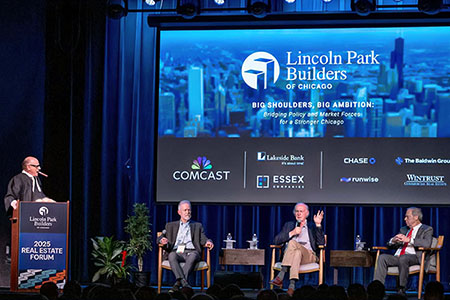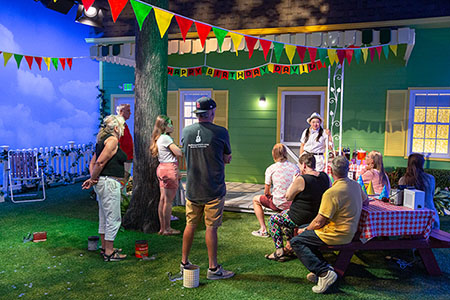Condo law co-author not ruled out as homicide suspect Victim in 1991 murder was client of attorney/scientist Donnie Rudd
On April 4, 1991, a 59-year-old woman, Lauretta Tabak-Bodtke, who had been a law client of Rudd’s, was found by her husband, shot in the face multiple times with a .22 caliber gun in the kitchen of their upscale townhouse on North Belmont Avenue. Hundreds of people were interviewed. Authorities at one time thought they had a case against a suspect but no one has ever been charged. Police suspect Lauretta knew and let into her home the person who killed her. There was no sign of forced entry or a struggle, and nothing appeared to have been stolen. Tabak-Bodtke was a self-employed interior designer. In 1989, she had a dispute with a partner in her business, Design 4 Inc., and hired Rudd to file a lawsuit on her behalf. On several occasions, according to the Attorney Registration and Disciplinary Commission, which investigates complaints involving the conduct and fitness of Illinois lawyers, Rudd “misrepresented the status of the lawsuit by stating that a judgment had been obtained on her behalf.” Rudd allegedly told the woman her case had been appealed, that she had won the appeal, and the defendant had paid a settlement. None of that, says the ARDC, was true. Rudd asserted his Fifth Amendment right not to talk to investigators of the ARDC complaint and that is what he did two years later with Arlington Heights police who were investigating Tabak-Bodtke’s murder. “Obviously we have revisited the case,” said Miguel Hernandez, commander of the Criminal Investigation Bureau at Arlington Heights Police Department, on Thursday. “We do not have anything to go on right now, anything further than we had awhile back. We’re just looking at all angles.” Hernandez says they interviewed Rudd in 1991 and – besides invoking his right not to speak – was cooperative. They have not spoken with him since. “It’s a regular course of action we do with these older cases,” said Hernandez. “We review them, get the evidence up to where it should be, then look to see if there’s anything new out there. It’s just a matter of protocol. It’s not something we’re hanging our hat on and have something going on here.” Hernandez says they are looking to new technology to help them solve the 22-year-old case. “There’s a lot of evidence here. We’re seeing if there’s anything else out there, any test that’s available to help us push this case forward. But we’re not quite there yet.” Rudd denies involvement Dr. Donnie Rudd has more than 40 patents, mostly related to cell regeneration, repair of human tissue, and curing diseases to vital organs. He has written 15 books and more than 160 professional publications. He co-wrote the 1983 condo law amendments with Ellis Levin, who was a state representative in the Illinois General Assembly from 1977 to 1995. Although admittedly at the home of Lauretta Tabak-Bodtke on the day she died, Rudd has denied involvement in the murder. He currently lives in Texas. On his Facebook page, the 71-year-old posted on March 14 that he was recovering from his next-to-last surgery for skin cancer. Last November, Fox 32 News legal analyst Larry Yellen reported that Stephanie Tabak, the victim’s daughter, told him that the week before she died, her mother had told Rudd she was going to file a complaint with the Attorney Registration and Disciplinary Commission, something the family did on her behalf. In 1997, the Daily Herald, a daily newspaper based in Arlington Heights, reported that police at one point tried unsuccessfully to get charges filed by the Cook County State’s Attorney’s Office against an unnamed suspect, and that the U.S. Department of Justice had also considered filing charges. However, with no witnesses and no murder weapon, no charges were ever filed. Clients complain to ARDC over tall tales There were four counts in the ARDC complaint against Rudd for misconduct. In 1981, according to the complaint, Rudd told a client, Joseph Massani, he had won a $40,000 lawsuit against his employer, Delmar Computing Inc., neglecting to mention that the corporation had been dissolved and collecting his money would be impossible. Rudd later got Massani to turn over his “winnings” to Rudd in exchange for a lump sum of $25,000, which the complaint noted was beyond Rudd’s ability to pay. He did pay Massani $2,000 in 1984 and another $2,000 in 1988, shortly before Rudd filed for bankruptcy. In 1985, Rudd agreed to help Surrey Park, a condominium association in Arlington Heights, prepare a new declaration. Three years later, he told the association he had prepared and filed its declaration and showed them a receipt for it from the Cook County Recorder. However, according to the complaint, Rudd had not in fact filed the declaration. In 1987, Rudd allegedly told eight clients they had collectively won $8 million in a lawsuit over a dispute they had with a condominium developer in Oak Brook – and they were ten days away from being paid – when in fact he had not yet filed the lawsuit. Rudd never responded to the ARDC complaint but on September 23, 1994, he requested that his name be removed from a list of attorneys licensed to practice law in Illinois. It was the end to a noteworthy law career. At one time, Rudd’s law firm in Schaumburg, Rudd & Associates, had more than 2,000 clients, mostly homeowner associations.
Rudd’s law firm combed through hundreds of lawsuits and other issues they had encountered over the years. Levin used Rudd’s suggestions to redraft 87 amendments, of which 85 percent were voted into law by Illinois legislators. In a 2008 interview with Marina City Online, Rudd said he was writing a book titled The Messiah Complex about condo boards. “No one in his right mind would sit on a condo board,” said Rudd. “So, you get the ‘second-tier’ people. Power goes to their heads. You need checks and balances. [Boards] can get out of control very quickly.” In 2009, around the time the company was purchased for $100 million, Rudd retired as Chief Scientist, Director of Intellectual Property, and Corporate Secretary for Regenetech Inc., a Houston, Texas company developing adult stem cell and tissue regeneration technology. Regenetech works with NASA on scientific studies, including techniques for keeping the tissue-regenerating cells from turning cancerous.
Related stories: |
















